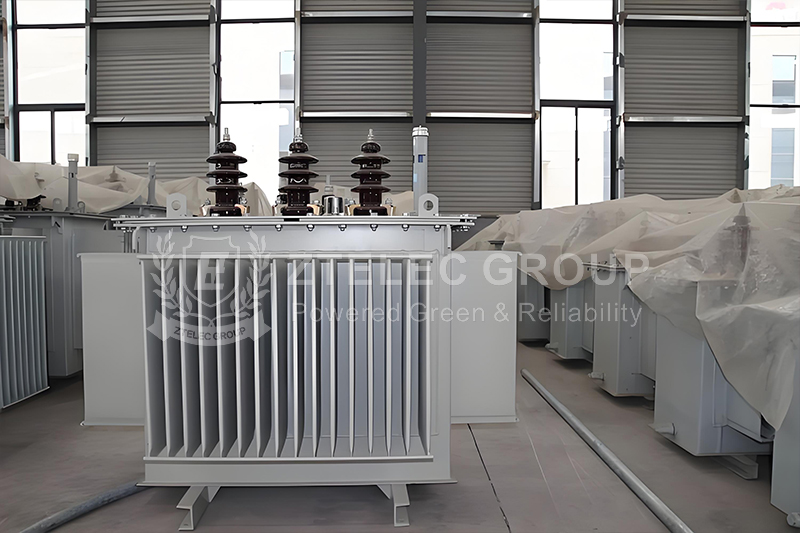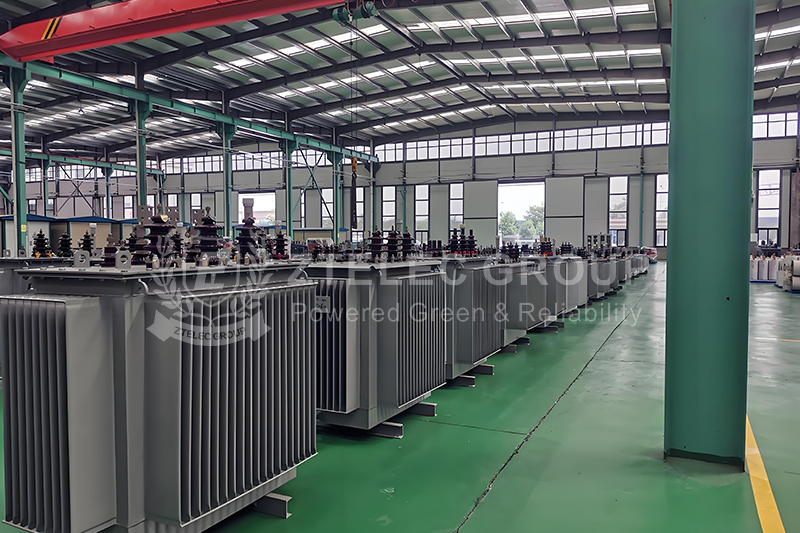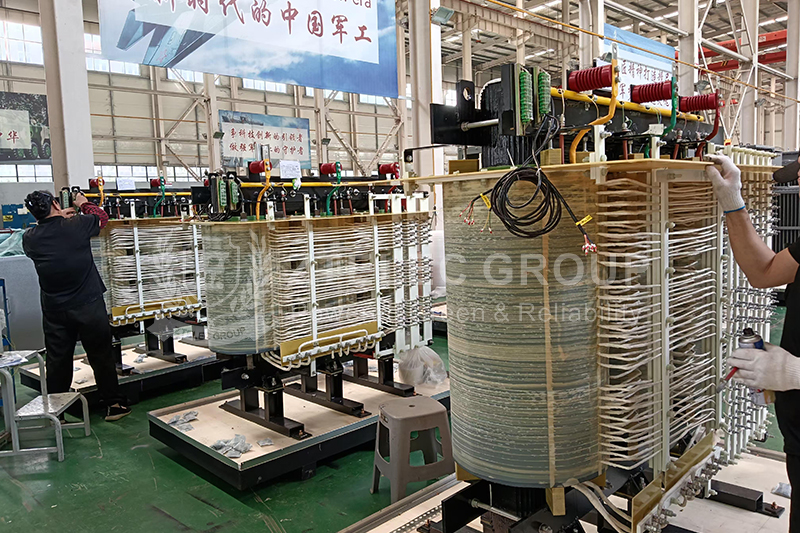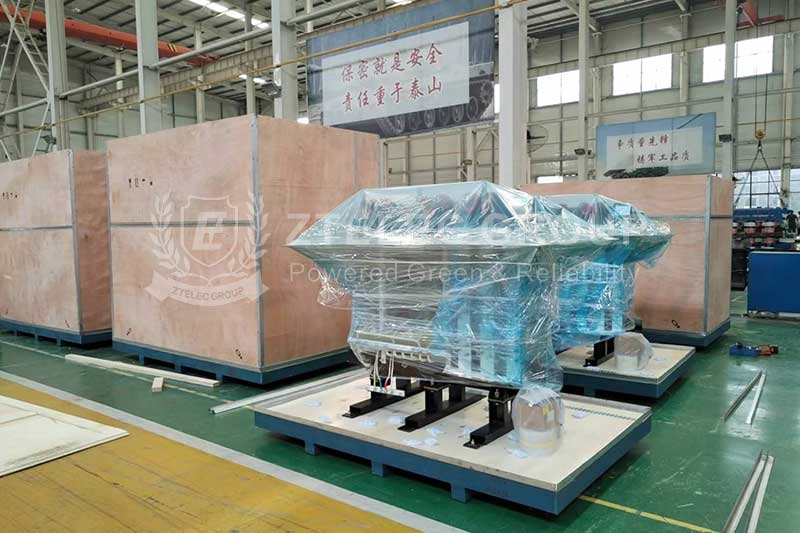Key points of oil-immersed transformer maintenance
In the power system, oil-immersed transformers play a vital role. Its maintenance work plays a decisive role in ensuring the continuous and stable operation of the transformer and extending its service life. So, what are the key points of oil-immersed transformer maintenance? Next, let's discuss it in depth.
Daily inspection: the first line of defense for hidden danger detection
Daily inspection is the core means to detect potential problems of transformers in a timely manner, requiring operation and maintenance personnel to carry out their work with a serious and meticulous attitude.
Appearance inspection
The first task is to conduct an appearance inspection. The operation and maintenance personnel need to carefully check whether the transformer shell is damaged or deformed, whether there is any sign of oil leakage in the oil tank, whether the respirator is working properly, and whether the silicone has changed color. Once the silicone color change range exceeds two-thirds, it should be replaced immediately. This is because only by ensuring that the respirator can effectively absorb moisture in the air can the transformer be prevented from getting damp inside and its stable operation be guaranteed.
Oil temperature and oil level inspection
Secondly, checking the oil temperature and oil level should not be ignored. Excessive oil temperature may be caused by factors such as transformer overload and cooling system failure. At this time, the cause must be promptly explored and dealt with. The oil level should be maintained within the specified range. If the oil level is too low, it is necessary to check for oil leakage and replenish the transformer oil in time; if the oil level is too high, it may be caused by abnormal operation of the cooling device or internal failure of the transformer, which requires further in-depth analysis and treatment.
Operation sound monitoring
In addition, the operation and maintenance personnel must listen carefully to the sound made by the transformer during operation. Under normal operating conditions, the transformer will emit a uniform humming sound. Once abnormal sounds, such as discharge sounds and popping sounds, are heard, it is very likely that there are problems such as internal insulation damage and loose windings. At this time, the power must be shut down immediately for inspection.

Oil management: ensuring the health of the "blood" of the transformer
Transformer oil has the important functions of insulation, heat dissipation and arc extinguishing during transformer operation. Regular testing and analysis of transformer oil is a key link in oil management.
Test items and standards
Test items include acid value, moisture, breakdown voltage, dielectric loss factor, etc. Excessive acidity will corrode the internal metal parts of the transformer, thereby reducing the insulation performance; excessive moisture content will cause the breakdown voltage of the oil to drop, posing a threat to the safe operation of the transformer. Under normal circumstances, the acidity of the transformer oil is required not to exceed 0.1mgKOH/g and the moisture content is required not to exceed 35mg/L.
Oil quality treatment measures
When the test results of transformer oil do not meet the standards, it is necessary to filter or change the oil. Oil filtering can remove impurities and moisture in the oil and improve the quality of the oil; oil change is to replace all unqualified oil with new qualified transformer oil. During the oil change process, it is important to pay attention to the consistency of the brand and performance of the new oil and the old oil, and the transformer should be flushed before the oil change to ensure internal cleanliness.
Cooling system maintenance: key guarantee for controlling oil temperature
The normal operation of the cooling system is crucial to effectively control the transformer oil temperature. Common cooling methods include oil-immersed self-cooling, oil-immersed air cooling, and forced oil circulation air cooling.
Equipment operation inspection
For air-cooled transformers, it is necessary to regularly check the operation of the fan and oil pump to ensure that the fan rotates flexibly and the oil pump works normally. At the same time, clean the dust and debris accumulated on the fan and heat sink in time to ensure good heat dissipation.
Control circuit and seal inspection
Also check the control circuit of the cooler to ensure that the cooler can automatically start operation when the transformer oil temperature rises; when the oil temperature drops to a certain level, it can automatically stop running. In addition, check the sealing of the cooler to prevent cooling water from leaking into the transformer oil, so as not to affect the performance of the transformer oil.

Electrical connection inspection: ensure stable power transmission
The reliability of electrical connection parts is directly related to the safe operation of the transformer.
Lead-out connection inspection
Check whether the lead-out connection of the transformer high and low voltage bushings is firm and whether there is heating or discoloration. The temperature of the connection part can be measured with the help of an infrared thermometer. Once the temperature is found to be too high, the cause must be found and handled in time. This may be caused by loose connection bolts, oxidation of contact surfaces, etc.
Grounding device inspection
At the same time, check whether the grounding device of the transformer is intact and whether the grounding resistance meets the requirements. The grounding device can effectively prevent the transformer from generating static electricity and overvoltage during operation, and protect the safety of equipment and personnel. Generally, the grounding resistance is required to be no more than 4Ω.
Insulation performance testing: an effective means to prevent insulation failures
Regularly testing the insulation performance of transformers is an important measure to prevent insulation failures.
Measurement of parameters such as insulation resistance
The insulation condition can be evaluated by measuring the insulation resistance, absorption ratio and polarization index of the winding. The insulation resistance should not be lower than the specified value, and the absorption ratio and polarization index should also meet the standard requirements. If the insulation resistance is too low or the absorption ratio and polarization index are unqualified, it may be caused by dampness in the winding, aging of insulation, etc., and further drying or replacement of insulation components is required.
DC resistance test
In addition, a DC resistance test can also be performed to check whether there are problems such as open circuit, short circuit or poor contact in the winding. The DC resistance unbalance rate should not exceed the specified value. If it exceeds the standard, the cause must be found and repaired in time.
Preventive test: comprehensive "physical examination" of transformers
Preventive testing is an important means of comprehensive "physical examination" of transformers. And it should be carried out regularly in accordance with relevant standards and regulations.
Test items and significance
The test items include winding DC resistance measurement, insulation resistance measurement, dielectric loss factor measurement, AC withstand voltage test, etc. Through preventive testing, potential defects inside the transformer, such as winding deformation, insulation aging, etc., can be discovered in time, and corresponding measures can be taken to deal with them, which can effectively avoid the occurrence of equipment failures.
- more+releated article
- 2026-01-04Common Power Transformer Faults: Causes, Solut
- 2025-12-312026 New Year Holiday Notice
- 2025-12-31Operation, Maintenance, and Service Life Manag
- 2025-12-30How to Select a 100 kVA–500 kVA Distribution
- 2025-12-29The Impact of NHN NMN Composite Insulation on
- 2025-12-26Practical Application of GPO-3 Insulation Boar
- 2025-12-2510kV Transformer Replacement Timeline: Install
- 2025-12-25Low Smoke EN45545 GPO3 UPGM203 Laminated Board
- 2025-12-24Merry Christmas — ZTelecgroup Christmas Cele
- 2025-12-24How to Select a Suitable 50kVA–500kVA Distri





